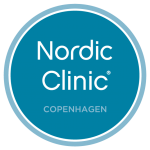Weight and metabolic health are of great importance for our well-being at large. Diet and lifestyle medicine can have powerful effects on obesity and diabetes. The gut microbiome and other factors such as stress, insomnia and hormonal changes have also been linked to these conditions.
Weight Management
Increasing numbers of people struggle with weight globally. The prevalence of obesity (BMI> 30) has tripled in Sweden since the 1980s, which means that over one million adults were obese in 2018 (source: Folkhälsomyndigheten). Obesity is linked to elevated risks of diseases such as cardiovascular disease, cancer, depression, infertility, diabetes, fatty liver and autoimmune disease. Diet and a sedentary lifestyle are the two major factors in weight management. However, many people experience great difficulties in implementing sustainable lifestyle changes on their own. Others experience that the scale does not move, despite having improved their diet and increased physical activity.
Multiple factors have been linked to an increased risk of being overweight. Stress and sleep disorders are two factors that, among other things, increase cortisol values and contribute to an accumulation of fat tissue. What time of day you eat your meals, and how often, is also important. There are also other less known factors that can contribute to obesity, such as hormonal disorders, inflammation, gut flora, certain drugs, environmental obesogens (obesity-producing substances). Sometimes obesity is a consequence of an undiagnosed medical condition such as hypothyroidism, Cushing’s disease, lipedema or Dercum’s disease.
Those affected need to be offered a thorough analysis and get an individual action plan. Our nutritional therapists and coaches help their clients develop a diet plan and improve routines. Sustainable diet changes are often ‒ but not always ‒ preferred over short-term regimens. We carefully review how the patient eats and lives. Is there anything in the patient’s life that causes them to overeat or choose the “wrong” foods? Are we dealing with a food or sugar addiction? Furthermore, we can test for gut flora composition, hormonal disorders, thyroid malfunction and inflammation.
Type 1 and Type 2 Diabetes
Type 2 diabetes has emerged as one of the most common conditions in the western world. A disease that used to strike the elderly exclusively, now increasingly hits children and adolescents as well. In type 2 diabetes, elevated blood sugar levels are a consequence of a phenomenon called insulin resistance. The danger thereof lies in the toxic properties of sugar. High blood sugar leads to oxidative stress that damages cells and tissues, for example blood vessels. Sugar indiscriminately sticks to various proteins in the body and interferes with their function, as well as changes their appearance. The latter can result in an autoimmune attack from the body’s own immune system when it can no longer recognise the protein as our own, but believes it’s an invader that needs to be destroyed. The drugs prescribed for type 2 diabetes are far from free of side effects. Some drugs cause weight gain. Weight gain is particularly common when the patient has become dependent on insulin injections, as insulin provides a powerful signal to the fat cells to grow. Above all, anti-diabetic drugs do not address the root cause of the disease.
Type 2 diabetes is considered mainly to be caused by our western lifestyle. Actual heredity is low. When the condition is said to “runs into the family”, we’re mainly dealing with an inheritance of dietary and lifestyle habits, as well as exposure to the same environmental factors. This is good news for everyone affected – we can’t change our genes, but we can control lifestyle, diet and environmental factors. Of all factors influencing type 2 diabetes, diet is the number one. Also, being overweight and living a sedentary life can contribute to insulin resistance as fat cells may lose their responsiveness to insulin. This means that all factors that influence weight gain, may also indirectly contribute to type 2 diabetes. Furthermore, various sources of inflammation have also been shown to have a detrimental effect on insulin sensitivity, since inflammation makes insulin receptors respond poorly to insulin. A recently identified risk factor for type 2 diabetes is an imbalanced gut flora.
Type 1 Diabetes
While type 2 diabetes is classified as a metabolic disorder, type 1 diabetes is an autoimmune disease affecting the cells that produce insulin. Both variants of diabetes have been steadily increasing among both adults and children. Genetic predisposition does increase the risk of type 1 diabetes, but a trigger is also needed for the disease to develop. Several environmental factors have been identified. For example, specific viral infections may trigger an autoimmune response to pancreatic proteins, leading to loss of function, and type 1 diabetes. Further, bacteria from the intestinal tract can escape into the body and reach the pancreas. This can result in an attack from the immune system, which in turn damages the insulin-producing cells. This occurs when the intestinal mucosa is hyperpermeable, also called “leaky gut”. As with other autoimmune diseases, diet and lifestyle can also contribute greatly to type 1 diabetes. Furthermore, vitamin D deficiency can contribute boh to autoimmunity in general, and type 1 diabetes specifically. If the condition is detected early, and measures are taken to reduce the autoimmune reaction, the course of the disease can be slowed down and the need for insulin therapy reduced. There are also documented cases where the patient has regained insulin production when the pancreatic tissue has not been completely destroyed. Also, some type 1 diabetics manage their disease entirely with diet.
Lifestyle Interventions and Lab Tests
Type 1 and type 2 diabetes increase the risk of many other conditions, including cardiovascular disease and cancer. Therefore, getting to the root causes is necessary to achieve the best possible recovery. At Nordic Clinic we’re experienced in working with diabetes. Maybe you’ve been advised to eat “healthier” and move on more, but need help establishing lasting lifestyle changes? Our nutritional therapists and health coaches work with powerful dietary interventions that can have profound effects on diabetes, leaky gut and the patient’s health as a whole. Our health coaches can put together exercise regimes to optimize blood sugar regulation. We can prescribe tests that can provide valuable information on vitamin D status, leaky gut, blood sugar, gut flora, stress hormones, inflammation and antibodies toward pancreatic proteins, and other parameters that may be relevant for diabetes.










